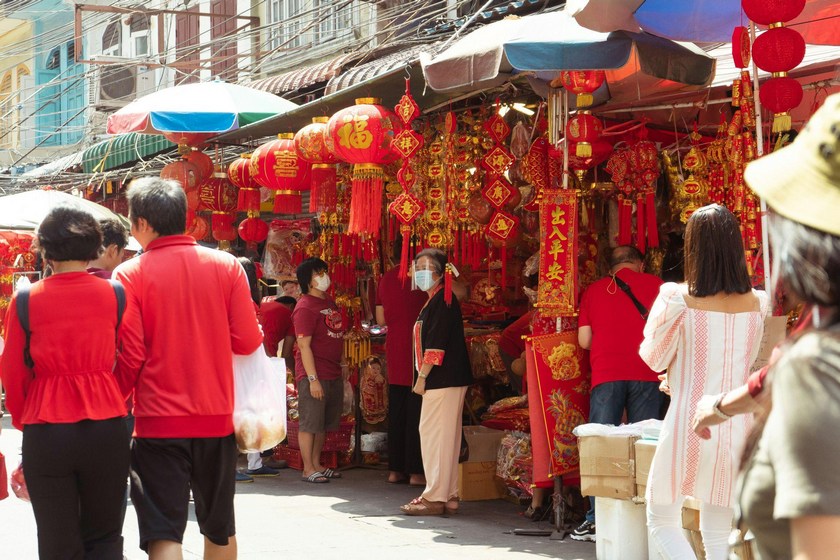Immigrating to a new country is a transformative experience that brings with it a mix of excitement, challenges, and opportunities. One of the most significant aspects of this transition is the way immigrants maintain their cultural identity, especially through the celebration of traditional holidays. Celebrating cultural holidays abroad is not just about keeping traditions alive; it is a vital way of preserving one’s heritage, fostering community, and enriching the multicultural tapestry of the host country.
The Importance of Celebrating Cultural Holidays
For many immigrants, cultural holidays are a cornerstone of their identity. These celebrations are deeply rooted in history, religion, and community, serving as a connection to their homeland and a way to pass down traditions to younger generations. By celebrating these holidays, immigrants maintain a sense of belonging and continuity, even when far from home. Moreover, these celebrations offer an opportunity for immigrants to introduce their culture to others. In multicultural societies, this exchange can promote understanding and appreciation of different traditions, fostering inclusivity and respect among diverse communities. Cultural holidays become a shared experience that brings people together, regardless of their backgrounds.
Challenges Faced by Immigrants
While the celebration of cultural holidays abroad is enriching, it presents several challenges. After obtaining an immigrant visa, many immigrants encounter difficulties in fully celebrating these occasions. One common issue is the difficulty of finding necessary resources or community support. Ingredients for traditional dishes may be scarce, and public holidays in the host country might not align with an immigrant’s cultural festivities. Additionally, a sense of isolation may arise if the immigrant community is small or dispersed, making it hard to recreate the communal atmosphere essential to these celebrations. Balancing the traditions of the homeland with the customs of the host country can also be a complex task.
Strategies for Celebrating Cultural Holidays Abroad
Despite these challenges, many immigrants discover creative and effective ways to celebrate their cultural holidays. Here are some strategies that have proven successful:
Building Community
One of the most impactful methods is to build or join a community. Immigrant communities often establish cultural associations or social clubs that organize events for major holidays. These groups provide a sense of belonging and mutual support, making it easier to celebrate traditions. In cities with large immigrant populations, cultural centers or places of worship often host holiday events. These gatherings can include communal meals, music, dance, and religious ceremonies, allowing participants to celebrate in a familiar and supportive environment.
Adapting Traditions
Sometimes, it is necessary to adapt traditions to fit the new country. This might involve modifying recipes to use locally available ingredients or adjusting timing to coincide with weekends. Flexibility in how traditions are practiced can help maintain their essence while making them more accessible. For instance, immigrants celebrating Lunar New Year may adapt by finding local substitutes for traditional ingredients and inviting friends and neighbors to join in the festivities, thereby sharing their culture and making the holiday more recognized within the broader community.
Leveraging Technology
In today’s digital age, technology plays a crucial role in helping immigrants celebrate cultural holidays. Social media platforms, video calls, and messaging apps allow immigrants to connect with family and friends back home, sharing in celebrations virtually. Online communities can also be valuable resources for information and support regarding cultural holiday celebrations.
Engaging with Local Communities
Another effective strategy is to engage with local communities. Inviting neighbors and colleagues to join celebrations fosters cross-cultural understanding and friendships. Schools, workplaces, and community centers often welcome opportunities to learn about and participate in various cultural traditions, which can enhance immigrants’ integration and recognition. Hosting parties and light displays for festivals like Diwali invites non-Indian friends and neighbors, preserving tradition while enriching the cultural fabric of the local community.
The Impact on the Host Country
Celebrating cultural holidays abroad significantly impacts the host country by enhancing cultural diversity and richness, making communities more vibrant. These celebrations can also promote social cohesion by encouraging dialogue and respect across different cultural groups. Moreover, immigrant celebrations can boost local economies. Events, festivals, and markets associated with these holidays often attract tourism and benefit local merchants, fostering economic integration.
Conclusion: The Power of Celebrating Cultural Holidays Abroad
Celebrating cultural holidays abroad serves as a powerful expression of identity and community for immigrants. Despite the challenges, these celebrations provide a vital link to their homeland and offer a way to share rich cultural traditions with the broader community.
Through creativity, adaptation, and community building, immigrants can keep their traditions alive, enriching their own lives and those of their neighbors. In doing so, they contribute to the beautiful mosaic of multicultural societies, where diversity is celebrated and cherished!




